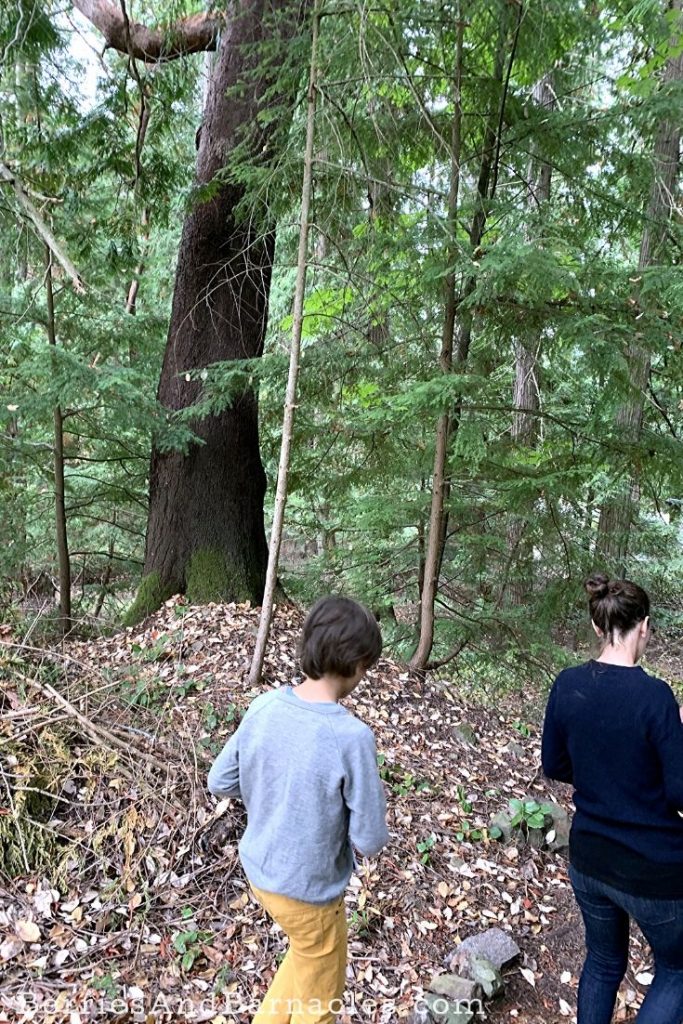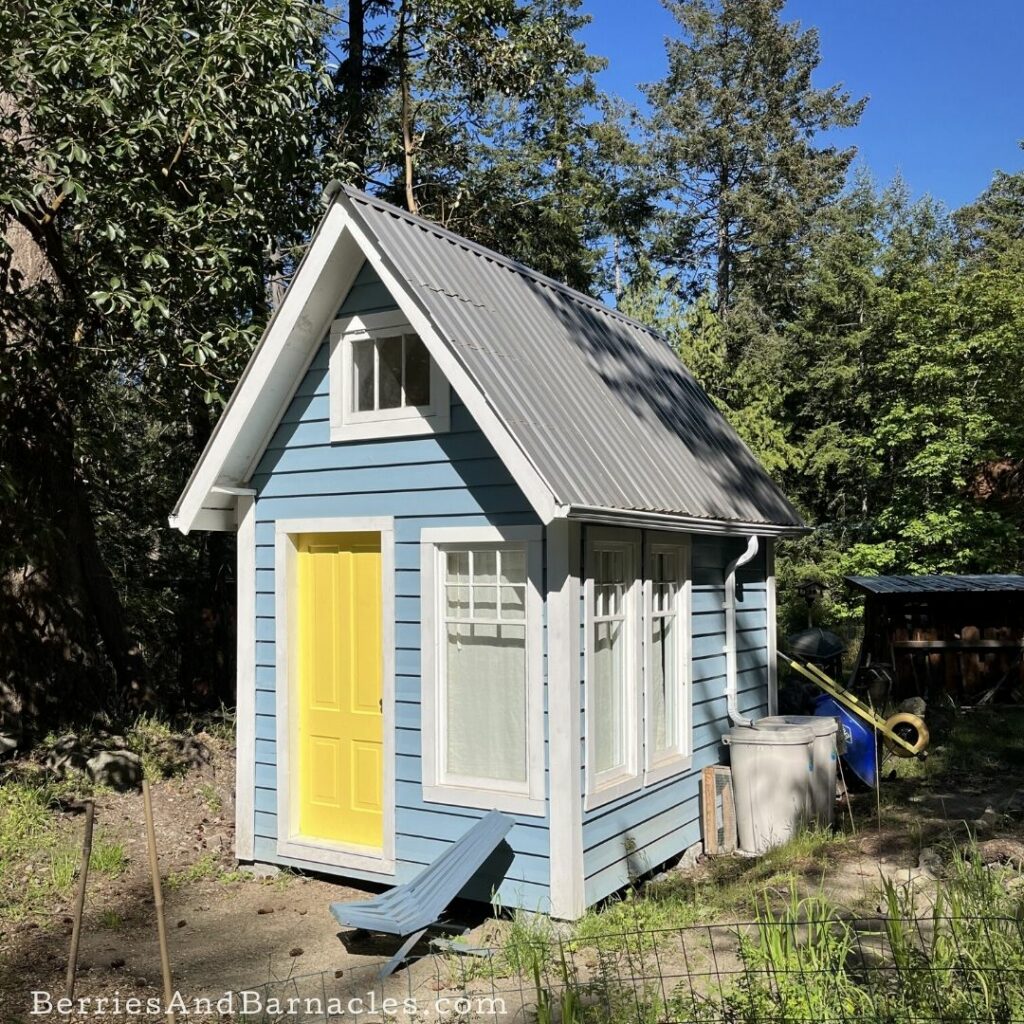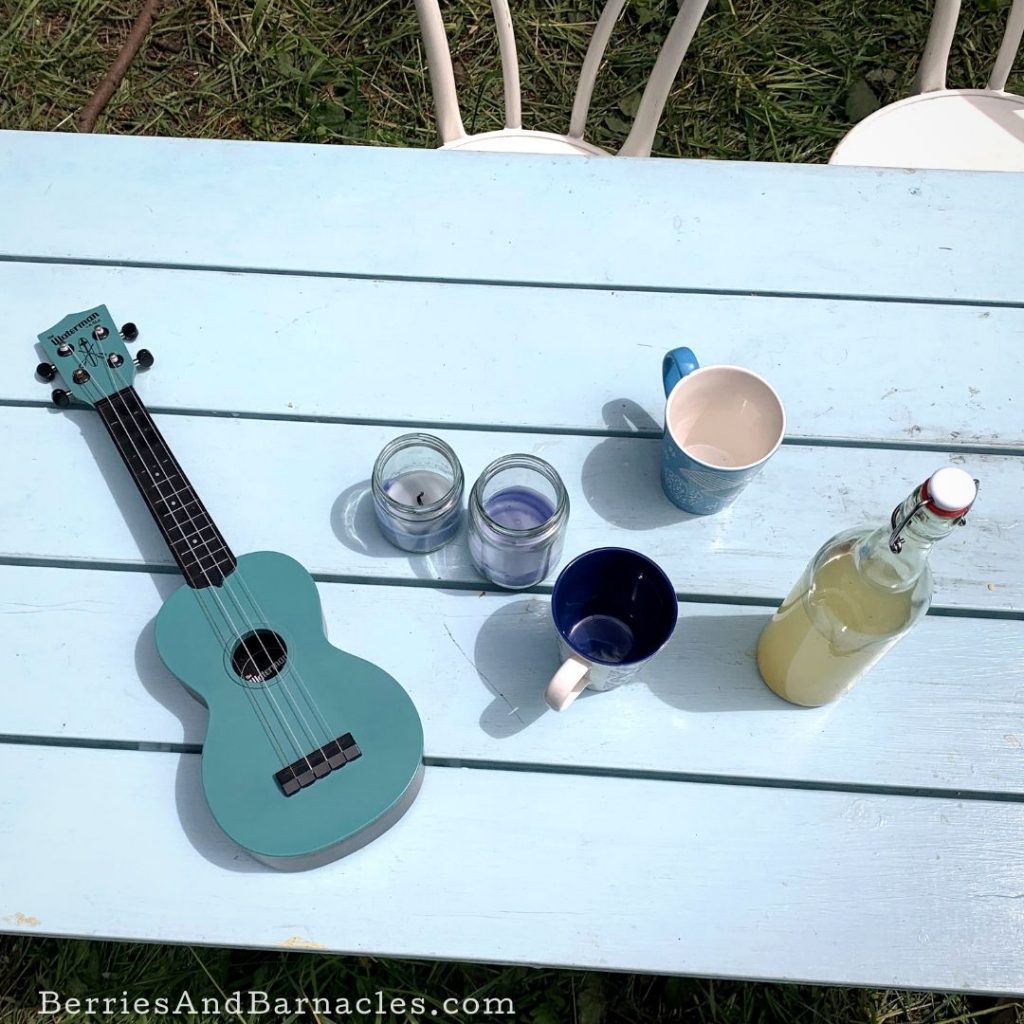Here is what you need to consider if you are buying vacant land for a cottage. Watch out for the major pitfalls, bylaws, and more.

There are many reasons to consider buying a vacation property, particularly if you are unable to afford a house in the city. In most cases, buying vacant land for a cottage is more affordable than buying something already built.
It also has the added appeal of being able to become whatever you want. So you aren’t stuck with someone else’s dream of an asbestos-tainted trailer from the ’70s or a geodesic dome from the ’80s.
Brad and I looked at vacation properties for over 4 years. During that time we put in offers on several properties, which all fell through for various reasons.
—One property went to blind bidding, even though it had been on the market for over a year. It went to a local for $1000 more than our offer, which seemed rather fishy to me. One seller had a family emergency right after we made our offer, and he felt he couldn’t coordinate selling at that time. One property had a covenant on it that was only opened after we made our offer… and it stated that nothing could be built on the property. I honestly thought we were cursed, which is why our purchase felt quite kismet!–
Regardless, we are well-versed in what you need to consider if you’re thinking about buying vacant land for a cottage.
Why do you want land?
No one should spend money on something as expensive as vacant land without having a clear idea as to WHY they want it. Because what you want to do with the land really will impact the type of land you should buy.
- Place in nature: If you are a forest bathing, solitary refuge type of person, then you’re in luck! It’s usually pretty cheap to buy a forested lot up the side of a mountain.
- Water fun: Cottages are often all about water access, which is why waterfront properties are super expensive. Even glimpses of the water from halfway up the side of a forested mountain are expensive. If water is super important, then you’d better start saving!
- Vegetables and fruit trees: My grandparents’ cottage featured two large garden plots and a sugar shack (they were in Upstate New York). Having a cottage with a garden will certainly require a bit of planning around access to freshwater and deer fencing. Regardless, you’ll definitely want to aim for a fairly flat piece of land with southern exposure. It also helps if there are farms nearby, suggesting that the soil may be fertile.
- Posh party place: Do you imagine spending the afternoon playing croquet and visiting art galleries, then finishing the day with a glass of vintage Bordeaux in a hot tub? Then you’ll need to consider the neighborhood of your cottage. There is a posh cottage country and rustic cottage country. Just make sure you’re in the right region.
- Income property: Planning on making money with a rental property? Then accessibility and tourist draw is key. It’s also a good idea to check out the local bylaws for vacation rental rules.
Local amenities
The local amenities will impact your use of the cottage more than you imagine. It’s handy to have at least a general store. It’s even handier to have a coffee shop and pub.
If you’re thinking of living full-time at your cottage then you really need to consider the community services. Are there schools? What health care services are available?
Community events are a great way to make friends and socialize. Unless you’re JD Salinger, a strong network of neighbors is really important in a rural community. They are the ones who will lend you that missing cup of sugar, help water your tomatoes while you’re away, and support you during an emergency.
Building Permits and Land Use Bylaws
Before purchasing vacant land for a cottage, it’s important to spend some time falling asleep to the boring legalese of the local bylaws. Everywhere has rules and regulations about what can be built and how the property can be used.
Rural properties can have a ton of restrictions. Here are just a few that we’ve seen:
- You can’t build a cottage without a septic system… which doesn’t work for anyone wanting an off-grid, composting toilet sort of property. Also, septic systems are expensive! Hard to put one in if you don’t plan on having any flush toilets.
- The footprint of a cottage and accessory buildings can’t be more than 1500 sq ft. Perfect for anyone wanting a tiny cottage and a garden shed. A bit small if you feature turning your house into a vacation palace, complete with a two-car garage and a guest house for the inlaws.
- Livestock can only be kept on properties greater than 2 acres (there goes our dream of a pet goat)!
- Accessory buildings may be temporarily used as a dwelling during the construction of a cottage. However, in order to build an accessory building, you first must have approval for the main dwelling place.
- Arbutus and Garry oaks cannot be cut down.
- Certain properties must have a rain catchment system.
It goes on and on. There are so many details that could put a wrench into your plans, whether you’re planning a tiny off-grid cabin or a massive holiday home.
Who are the People in the Neighborhood?
The culture of the neighborhood will really impact the feeling of your cottage. We were planning to build a little off-grid cabin, so we aren’t interested in buying a property in the cottage suburbs. I don’t want to look at giant 3-story prefab homes any more than they want to look at my self-built water catchment system.
We were planning on cycling to the cottage and heading to the beach on foot. So we need a neighborhood that was just fine for our car-free lifestyle.
To figure out which cottage neighborhood (or Island, in our case) would suit us the best, we spent time visiting each location, usually camping or renting cabins for several nights at a time. It’s amazing how much culture you can glean from a short visit.
Accessibility
When I was a kid, we had a friend who had a cottage that was a painful 4-hour drive from the city. We only went up to visit them a few times. The lake was beautiful. The surrounding forests and farms were peaceful. But the drive was pure torture. And they did it every weekend!
Most everyone I know has a drive, then a ferry ride to their cottage. It’s doable, but not something they do every weekend.
I know two people who have cottages on non-accessible islands, which means they have to have a moored boat in order to get to their cottage. I’m not sure if that makes them more or less likely to make the trip, but it certainly increases the cost of ownership.
Then there are the people who’ve bought land way out in the middle of nowhere and they have to take a plane or a seriously long car trip to get there. The trip is very time-consuming and complex. It probably felt fun and adventurous the first few years of ownership…. but…
Services
There are two types of vacant land:
- Those with municipal access to water, electricity, and the internet.
- And those that require solar panels and rain barrels.
Deciding which type of property to buy is a matter of personal preference. Here are a few things to consider:
- Land that has access to services is much easier to resell.
- It’s easier to convert a cottage to a full-time home if it has access to the internet.
- Off-grid systems aren’t for the faint of heart. Even if you pay someone else to do all the work of installing and maintaining it, it’s not going to be as simple as turning on a light switch.
Beware of the Major Pitfalls
Any decent realtor should make sure you don’t end up with a lemon. Even so, it’s good to be aware of all the usual issues:
- Geological issues: Particularly important in our earthquake-prone region. Watch out for cliffs or rocky overhangs. We looked at one property where the entire thing was set to slide into the ocean in a seismic event. The realtor mentioned that it might be hard to mortgage or insure any building on the property… Even with the cliffside ocean view, I don’t know if it ever sold.
- Rain: It’s always good to know where the rain runoff areas are. We looked at one property that tried to eat Una. It was basically a swamp, and Una was the first one to step off the road and into a puddle right up to her middle. We looked at the property in January, and I’m sure that if we’d looked at the property in July we might have even purchased it! Beautifully flat, wooded, and sunny. Just a short walk to the beach. The realtor hadn’t even realized how swampy it was in the winter.
- Contamination: Rural vacant land is unlikely to have any contamination. But it’s always good to check out the history of the site just to make sure.
- Archaeological sites: Always good to check out a map of where the local archaeological sites are. You don’t want to accidentally dig up anything surprising.



Leave a Reply